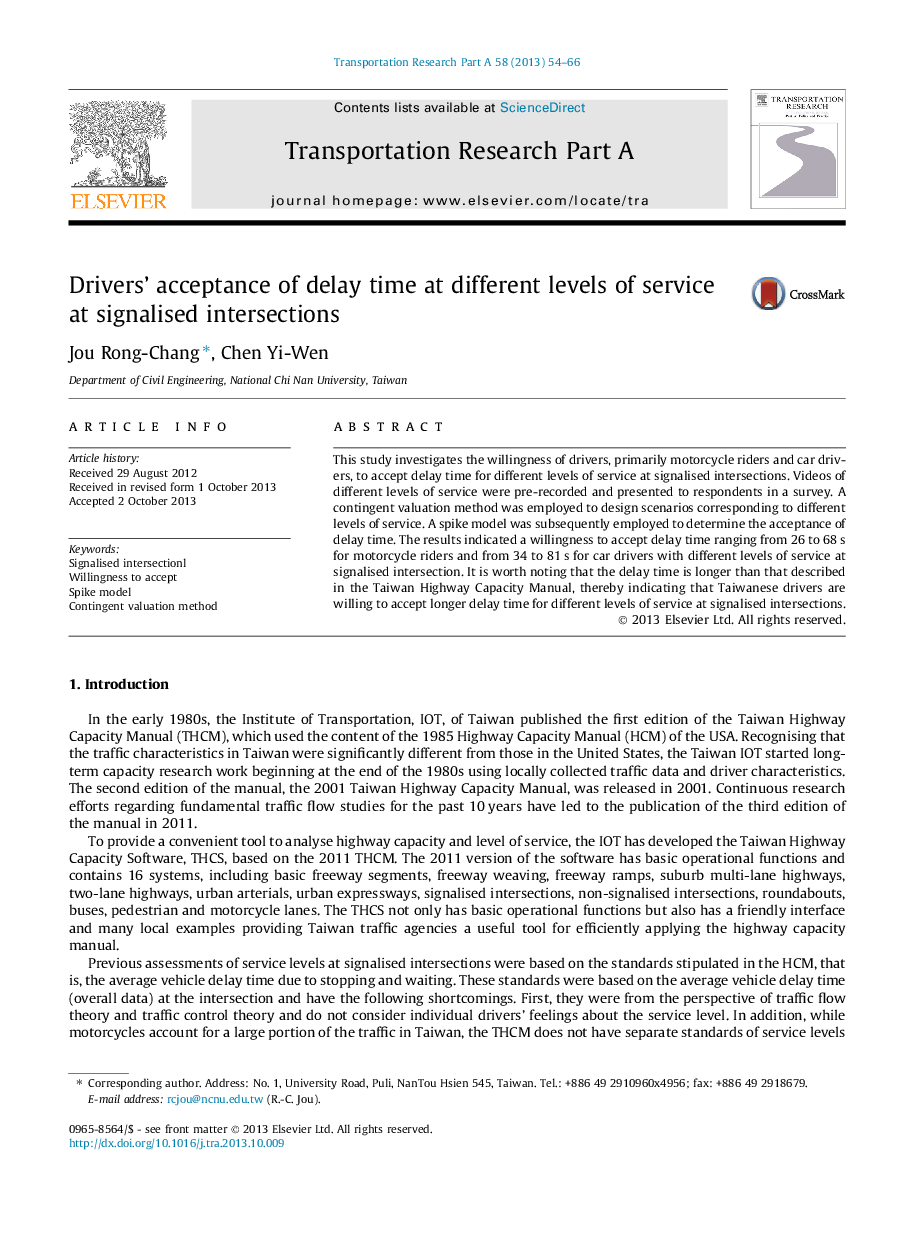| Article ID | Journal | Published Year | Pages | File Type |
|---|---|---|---|---|
| 6781814 | Transportation Research Part A: Policy and Practice | 2013 | 13 Pages |
Abstract
This study investigates the willingness of drivers, primarily motorcycle riders and car drivers, to accept delay time for different levels of service at signalised intersections. Videos of different levels of service were pre-recorded and presented to respondents in a survey. A contingent valuation method was employed to design scenarios corresponding to different levels of service. A spike model was subsequently employed to determine the acceptance of delay time. The results indicated a willingness to accept delay time ranging from 26 to 68Â s for motorcycle riders and from 34 to 81Â s for car drivers with different levels of service at signalised intersection. It is worth noting that the delay time is longer than that described in the Taiwan Highway Capacity Manual, thereby indicating that Taiwanese drivers are willing to accept longer delay time for different levels of service at signalised intersections.
Related Topics
Physical Sciences and Engineering
Engineering
Civil and Structural Engineering
Authors
Jou Rong-Chang, Chen Yi-Wen,
